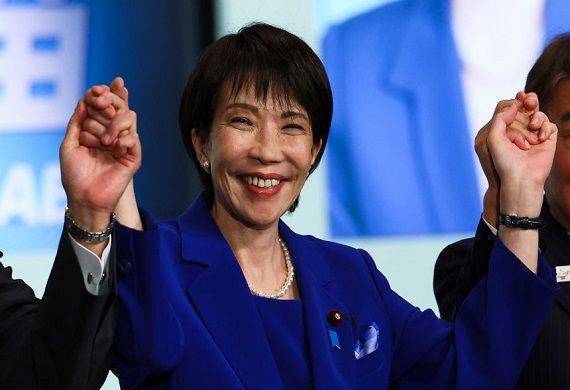Japan Elects Takaichi as First Female PM Despite Gender Gaps
By Global Leaders Insights Team | Oct 21, 2025

In a historic move, Japan's Upper House elected Sanae Takaichi as the nation's first female Prime Minister, securing 125 votes, just above the majority needed.
Earlier, she clinched 237 votes in the Lower House, surpassing the required 233. Takaichi’s ascent follows her victory in the Liberal Democratic Party’s leadership race, a milestone celebrated by U.S. President Donald Trump, who praised her "great wisdom and strength."
Takaichi’s election comes as Japan grapples with persistent gender equality issues, ranking 118th out of 148 countries in the World Economic Forum’s latest report. Despite government efforts to boost female leadership to 30% by 2020, a target quietly delayed, women remain underrepresented in politics and business.
- Sanae Takaichi Becomes Japan’s First Female Prime Minister Amid Gender Equality Challenges
- Historic Election of Takaichi Marks Shift in Japan’s Political Landscape and U.S. Ties
- Japan’s Gender Gap Remains Key Challenge as Takaichi Assumes Premiership
Societal and familial pressures often push women toward traditional roles like homemaking, with taboos surrounding women in leadership persisting, despite Japanese women being among the world’s best educated.
Takaichi, a conservative figure, has positioned herself as a reliable U.S. ally, pledging to honor an investment deal with Trump to strengthen bilateral ties. Her leadership marks a potential shift, though challenges remain in addressing Japan’s deep-rooted gender disparities. She expressed gratitude for Trump’s support, stating her intent to bolster the U.S.-Japan alliance.
Also Read: Rodrigo Paz Wins in Bolivia, Ending 20 Years of Leftist Rule
As Takaichi steps into her role, her administration faces the dual task of advancing Japan’s global standing while tackling domestic calls for greater gender equity. Her leadership will be closely watched as a potential catalyst for change in a nation where traditional norms continue to shape opportunities for women.
.jpg)



